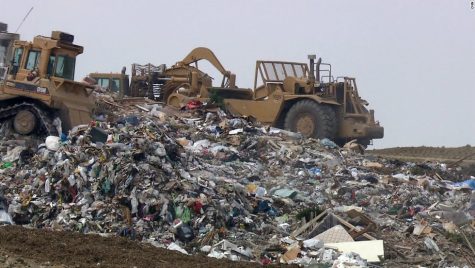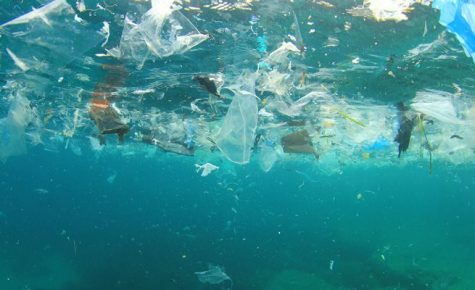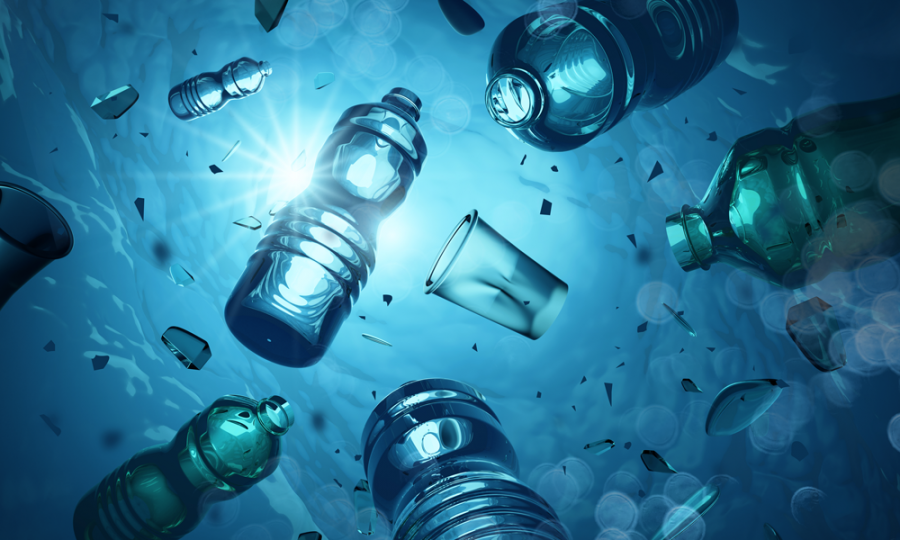Non-Biodegradable Trash is Contributing to Climate Change
November 18, 2020
Pollution is one of those problems we can’t ignore. Despite the quarantine, not everything is shut down and consumers are still able to buy products. Factories are still making products for consumers to buy and they end up throwing away lots of trash. This includes milk jugs, water bottles, and smaller things such as ziplock bags and plastic straws. All of this is being thrown away to rot together with the other litter in landfills. All of this trash is non-biodegradable.

The United States has 3,091 landfills and it seems like nobody puts up a fight over the complications and health issues they cause. According to epa.gov, landfills are 19.2% of plastic, which doesn’t seem like a lot but it really adds up over time. Plastic is one of those waste products that stays around for a long time. The garbage from the landfills ends up everywhere: all over the roads and highways, sidewalks, and even in our oceans. This rubbish causes the environment to have a lot of problems, and contributes to global warming too.
Besides humans, animals are greatly affected by this Their environment and homes are becoming surrounded by trash, and many species are often being hurt by this change in their environment. With very little being done, it makes one wonder: is human comfort and convenience worth much more than the lives of animals in their natural environments?
It’s a dire time for humans to realize that this unsustainable lifestyle will soon lead to an unlivable environment for both animals and humans. We are rapidly approaching irreversible damaging effects on our environment if something doesn’t change fast.

Many of our oceans are filling with trash, resulting in disastrous effects on the aquatic animals living in the ocean. Not only does the ocean life gets tangled in the trash, but it also is poisoning their environment.
The effects go much further than ocean life as land animals near the ocean are being affected just as negatively by this rise in littered oceans. It’s important that we all take action and help slow this issue, making the earth better. An especially important thing to remember is to simply throw our trash away in the correct places rather than littering.
The importance to reduce, reuse, and recycle in order to minimize litter is greater than ever before. Another factor would be using plastic alternatives, such as glass or bio-friendly substitutes. If everyone would commit to throwing away trash correctly, whether it’s at work, school, or just out in public, then we could help slow trash ending up in the wrong locations.



